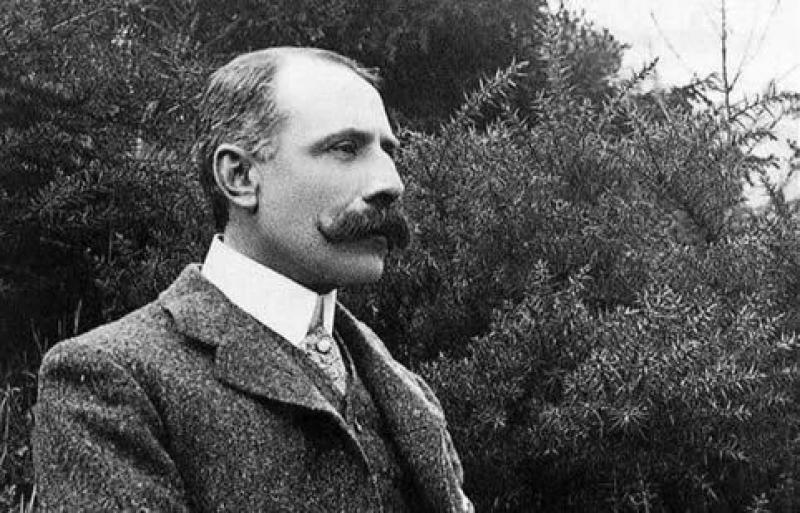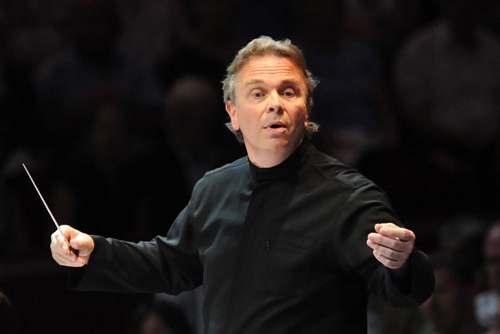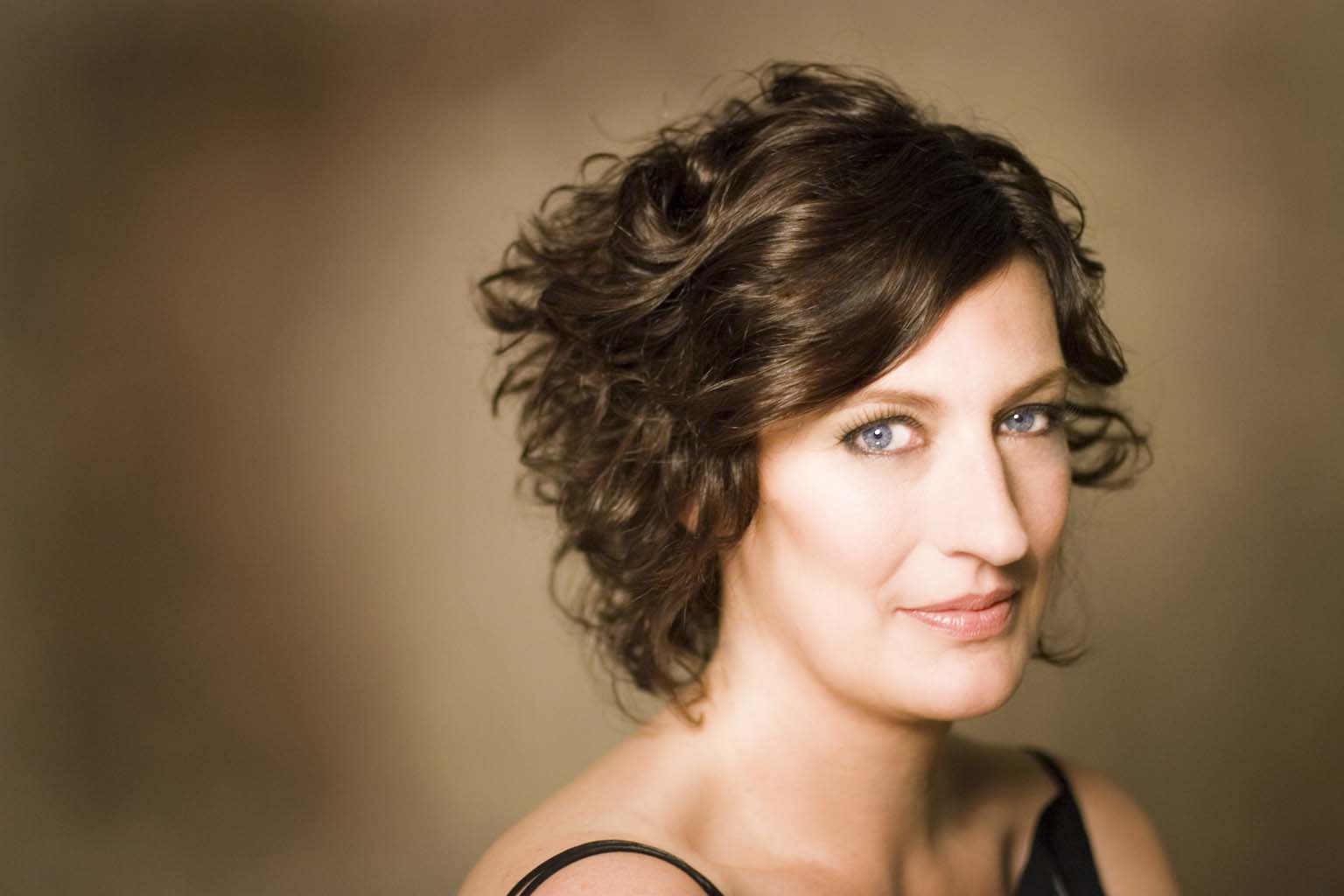The Dream of Gerontius, LPO, Elder, Royal Festival Hall | reviews, news & interviews
The Dream of Gerontius, LPO, Elder, Royal Festival Hall
The Dream of Gerontius, LPO, Elder, Royal Festival Hall
Elgar's oratorio at its Wagnerian finest under Elder

We’re still in the foothills of the Southbank Centre’s year-long The Rest is Noise festival, but already the harmonic ground is becoming unsteady underfoot. Last weekend saw the gemütlichkeit of Johann Strauss give way to the brutality of Richard Strauss, exposed us to the moistly chromatic flesh of Salome that lies behind the seven veils, and showed just a hint of Schoenbergian ankle.
Not exactly. Although latterly exorcised of its dangerous Catholic subversion and colonised by choral middle-England, there is much in this astonishing oratorio to thrill. Framing it in the context of Strauss (who, incidentally, hailed Elgar as “the first English progressivist” after hearing the Gerontius) allows the work’s Wagnerian structural conception and harmonic richness to emerge, rather than swaddling its challenges in the cotton-wool of musical Englishness.
Elder’s grasp of the work’s internal geography is absolute
Mark Elder (pictured below) is one of the finest Elgarians, and over the past few years we’ve seen a glorious oratorio-cycle from him. But while The Apostles and The Kingdom have their moments, it is Gerontius that stands alone as a true masterwork. Helping him realise it here were the massed forces of the London Philharmonic Orchestra and Choir, with the Choir of Clare College, Cambridge serving as spiritual semi-chorus. Impeccably drilled, the chorus were admirable in their restraint, allowing themselves little more than a mezzo-piano for much of the evening. If moments of Cardinal Newman’s text were lost as a result, it was all worth it is the sonic payoff of their release (together with the full might of the LPO’s brass and percussion) at climactic moments.
 The oratorio’s two movements replace conventional narrative with philosophical dialogue and contemplation, and so rely absolutely on the musical pacing if the Soul’s journey isn’t to lack direction. Elder’s tempos are by no means swift, but his grasp of the work’s internal geography is absolute, allowing things to be spacious without ever feeling stagnant. The hesitant doubt of the work’s opening in wind and low strings returns strangely transmogrified in the high-string melody of Part II – a relationship Elder’s direction renders organic and inevitable.
The oratorio’s two movements replace conventional narrative with philosophical dialogue and contemplation, and so rely absolutely on the musical pacing if the Soul’s journey isn’t to lack direction. Elder’s tempos are by no means swift, but his grasp of the work’s internal geography is absolute, allowing things to be spacious without ever feeling stagnant. The hesitant doubt of the work’s opening in wind and low strings returns strangely transmogrified in the high-string melody of Part II – a relationship Elder’s direction renders organic and inevitable.
Only in moments of transition did the LPO falter, hinting perhaps at a lack of rehearsal time with the soloists. Tenor Paul Groves gives such a flexible reading of Gerontius, and it would have been nice to see the orchestra follow him more readily, rather than taking two bars each time to settle into the new tempo.
 Groves’ operatic, dramatised wanderer sat well against the warm control of Sarah Connolly (pictured left). If there’s a better Angel singing today, I have yet to hear them. Church-pure and Wagner-large by turns, Connolly’s “Alleluia” is a prayer that would move the sternest God, thrumming as the emotional pulse of the performance.
Groves’ operatic, dramatised wanderer sat well against the warm control of Sarah Connolly (pictured left). If there’s a better Angel singing today, I have yet to hear them. Church-pure and Wagner-large by turns, Connolly’s “Alleluia” is a prayer that would move the sternest God, thrumming as the emotional pulse of the performance.
With the advertised Brindley Sherratt ill, James Rutherford stepped in to provide stentorian support as the Priest. He added a darker colour to the gentler shades of Clare Choir and the London Philharmonic Choir, whose tone is never less than lovely, but who never quite seemed to find the darkest shades of Elgar’s demonic writing, the “uncouth dissonance” Newman’s text speaks of so vividly.
Next weekend with see The Rest is Noise delving into musical nationalism, allowing Englishness a more expansive voice. But it feels right, natural that Gerontius should be set apart. It’s a work that sees Elgar not just at his finest but at his most Germanic. It will always be a national treasure, but in the composer’s conception and Elder’s generous interpretation Elgar’s oratorio is surely an international treasure too.
rating
Share this article
Add comment
The future of Arts Journalism
You can stop theartsdesk.com closing!
We urgently need financing to survive. Our fundraising drive has thus far raised £49,000 but we need to reach £100,000 or we will be forced to close. Please contribute here: https://gofund.me/c3f6033d
And if you can forward this information to anyone who might assist, we’d be grateful.

Subscribe to theartsdesk.com
Thank you for continuing to read our work on theartsdesk.com. For unlimited access to every article in its entirety, including our archive of more than 15,000 pieces, we're asking for £5 per month or £40 per year. We feel it's a very good deal, and hope you do too.
To take a subscription now simply click here.
And if you're looking for that extra gift for a friend or family member, why not treat them to a theartsdesk.com gift subscription?
more Classical music
 Elschenbroich, Grynyuk / Fibonacci Quartet, Edinburgh International Festival 2025 review - mahogany Brahms and explosive Janáček
String partnerships demonstrate brilliant listening as well as first rate playing
Elschenbroich, Grynyuk / Fibonacci Quartet, Edinburgh International Festival 2025 review - mahogany Brahms and explosive Janáček
String partnerships demonstrate brilliant listening as well as first rate playing
 BBC Proms: Akhmetshina, LPO, Gardner review - liquid luxuries
First-class service on an ocean-going programme
BBC Proms: Akhmetshina, LPO, Gardner review - liquid luxuries
First-class service on an ocean-going programme
 Budapest Festival Orchestra, Iván Fischer, Edinburgh International Festival 2025 review - mania and menuets
The Hungarians bring dance music to Edinburgh, but Fischer’s pastiche falls flat
Budapest Festival Orchestra, Iván Fischer, Edinburgh International Festival 2025 review - mania and menuets
The Hungarians bring dance music to Edinburgh, but Fischer’s pastiche falls flat
 Classical CDs: Hamlet, harps and haiku
Epic romantic symphonies, unaccompanied choral music and a bold string quartet's response to rising sea levels
Classical CDs: Hamlet, harps and haiku
Epic romantic symphonies, unaccompanied choral music and a bold string quartet's response to rising sea levels
 Kolesnikov, Tsoy / Liu, NCPA Orchestra, Chung, Edinburgh International Festival 2025 review - transfigured playing and heavenly desire
Three star pianists work wonders, and an orchestra dazzles, at least on the surface
Kolesnikov, Tsoy / Liu, NCPA Orchestra, Chung, Edinburgh International Festival 2025 review - transfigured playing and heavenly desire
Three star pianists work wonders, and an orchestra dazzles, at least on the surface
 BBC Proms: Láng, Cser, Budapest Festival Orchestra, Iván Fischer review - idiomatic inflections
Bartók’s heart of darkness follows Beethoven’s dancing light
BBC Proms: Láng, Cser, Budapest Festival Orchestra, Iván Fischer review - idiomatic inflections
Bartók’s heart of darkness follows Beethoven’s dancing light
 Weilerstein, NYO2, Payare / Dueñas, Malofeev, Edinburgh International Festival 2025 review - youthful energy and emotional intensity
Big-boned Prokofiev and Shostakovich, cacophonous López, plus intense violin/piano duo
Weilerstein, NYO2, Payare / Dueñas, Malofeev, Edinburgh International Festival 2025 review - youthful energy and emotional intensity
Big-boned Prokofiev and Shostakovich, cacophonous López, plus intense violin/piano duo
 theartsdesk at the Three Choirs Festival - Passion in the Cathedral
Cantatas new and old, slate quarries to Calvary
theartsdesk at the Three Choirs Festival - Passion in the Cathedral
Cantatas new and old, slate quarries to Calvary
 BBC Proms: Estonian Philharmonic Chamber Choir, Kaljuste review - Arvo Pärt 90th birthday tribute
Stillness and contemplation characterise this well sung late-nighter
BBC Proms: Estonian Philharmonic Chamber Choir, Kaljuste review - Arvo Pärt 90th birthday tribute
Stillness and contemplation characterise this well sung late-nighter
 BBC Proms: Kholodenko, BBCNOW, Otaka review - exhilarating Lutosławski, underwhelming Rachmaninov
Polish composers to the fore in veteran conductor’s farewell
BBC Proms: Kholodenko, BBCNOW, Otaka review - exhilarating Lutosławski, underwhelming Rachmaninov
Polish composers to the fore in veteran conductor’s farewell
 theartsdesk at the Pärnu Music Festival 2025 - Arvo Pärt at 90 flanked by lightness and warmth
Paavo Järvi’s Estonian Festival Orchestra still casts its familiar spell
theartsdesk at the Pärnu Music Festival 2025 - Arvo Pärt at 90 flanked by lightness and warmth
Paavo Järvi’s Estonian Festival Orchestra still casts its familiar spell

Comments
What on earth is meant by the
LPO Chorus=LPO Choir.
I think it's really just good
Apologies for the lapse - the
Apologies for the lapse - the London Philharmonic Choir has now been restored to its correct title. Alexandra
Thank-you, it's very much